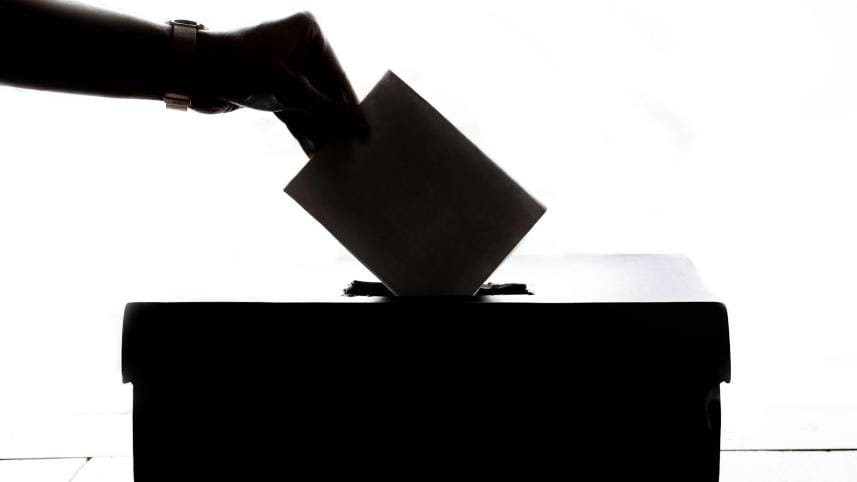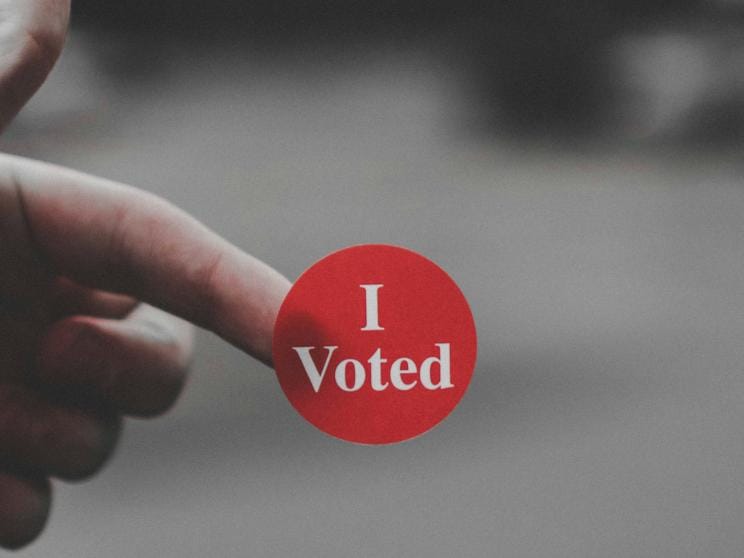Voting rights should be taught in Bangladesh schools – here’s why

The first time I participated in an election process was in 2018, a year after I became a US citizen. Before that, I had never experienced the joy and the honour of casting a vote in any kind of election. I had lived in Bangladesh until 2008, and during my life there, I never went out to vote in any election. I am not entirely sure why. Was it because nobody ever taught me about the significance of voting? Perhaps. It was when I saw my child voting in a mock election at her preschool during the 2016 US presidential election that I realised that voting must be so important that children are taught about it even before they can speak clearly!
In 2016, I was not a US citizen yet, so I had to wait two more years in order to be able to vote. Finally, in 2018, I voted in the US midterm election.
It was a cold and rainy November evening, but I did not mind the weather; I was just too excited about voting for the first time in my life. I felt so empowered at the same time, because I knew every vote mattered! I also could not wait to wear the iconic "I Voted" sticker and have a picture taken to commemorate my participation in the democratic process!
I recently followed the DUCSU (Dhaka University Central Students' Union) election in Bangladesh. On social media, I watched young men and women being interviewed by journalists. When some students, with smiles on their faces, revealed that they would be voting for the first time in their lives, it gave me goosebumps. I could feel their excitement and the sense of empowerment they felt in being able to express their voices.

I learned about the importance of voting from my daughter's preschool. What an unlikely place to learn about the democratic process!
Growing up, I was never taught about democracy and voting at school or at home, but I firmly believe that times have changed in Bangladesh, and students across the country should now be taught about the significance of democracy and voting. This should be integrated into their social studies education at school. Such awareness will help foster informed citizens who will respect and uphold the constitution, laws, and democratic process. In addition to educational institutions, parents can also assume the responsibility of teaching their children about the significance of free and fair elections and the value of participating in them.
Here in the US, children participate in various school projects before the presidential election. They design campaign posters, engage in civic discussions, analyse presidential debates, evaluate local candidates, and even vote in mock elections. Last year, on the day of the 2024 presidential election, we took our daughter with us to the polling station to give her a firsthand experience of what voting in real life looks like. The volunteers and polling officers warmly welcomed her.
The DUCSU election demonstrated how enthusiastic our young people are about making their voices heard through voting. While the election was centred around Dhaka University, the tension and excitement surrounding it touched people across the country and beyond. It is an indication of what we might see in the general election. The general election, which is expected to be held early next year, is going to be an opportunity for so many young individuals to exercise their most fundamental democratic right for the first time in their lives.
The upcoming Bangladesh general election presents an excellent opportunity for our school-going children to learn about voting rights and the electoral process. Similar to the US and other countries, learning about the electoral process could be made part of every school's civic education so that every child in the country grows up understanding that voting is their fundamental democratic right.
Being able to vote is not only a right, it is also a privilege. So many people around the world do not have the right to vote and choose their own lawmakers. Bangladesh itself had gone through this struggle, and never again should we let a leader evolve into an autocrat.




 For all latest news, follow The Daily Star's Google News channel.
For all latest news, follow The Daily Star's Google News channel.
Comments